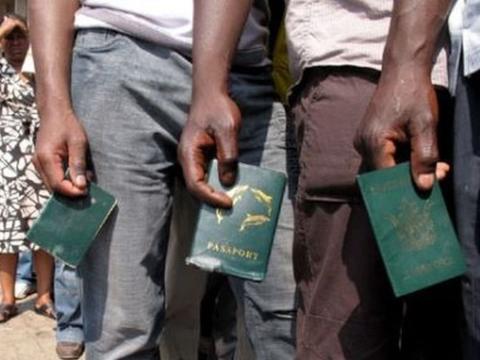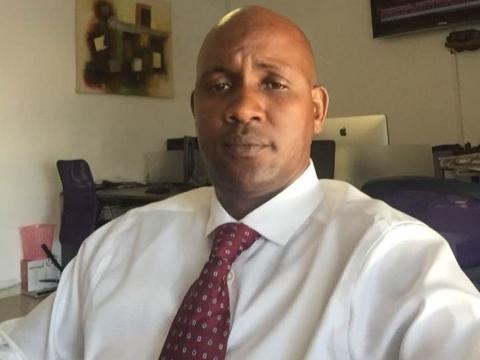By Abu Bakarr Jalloh
My experience crossing borders of Economic Community of West African States (ECOWAS) countries has been broaden to include more countries in the sub-region.
From May 19, 2022 to July 6 2022, I travelled to five ECOWAS countries namely Senegal, Nigeria, Ghana, Ivory Coast and Guinea Conakry. I also travelled within these five countries to over 30 destinations to collect data from communities across West Africa.
The research project carried out by Sanusi Research & Consulting based in Sierra Leone covered eight countries: Ivory Coast, Gambia, Guinea Conakry, Ghana, Mali, Niger, Nigeria and Senegal. The project was successful not only because we were able to satisfy the client but also the ability to connect the findings to problems of tax evasion, smuggling, drugs and human tracking in West Africa.
Effort to promote trade and avoid the negative impact of border restrictions, ECOWAS members comprising of Benin, Burkina Faso, Cape Verde, Ivory Coast, Gambia, Ghana, Guinea Conakry, Guinea-Bissau, Liberia, Mali, Niger, Nigeria, Senegal, Sierra Leone and Togo have signed series of agreements to make the movement of people, capital, goods and services easy. Moreover, the multilateral organization looks forward to introducing a single currency called the Eco.
However, being an ECOWAS citizen from Sierra Leone, my border crossings was not as free as I hoped. Moreover, the problem of corruption and porous borders, especially land borders, have the potential to aggravate tax evasion, smuggling, drug and human trafficking.
Land borders
Before the research mission, I had considerable experience crossing land borders of Sierra Leone-Guinea, Senegal-Guinea and Senegal-Gambia but never at this scale. The research mission urged me to look out for evidence of tax evasion and smuggling, drug and human trafficking at border checkpoints.
Therefore, I was not surprised of what I saw when I was crossing the Senegal-Gambia and Guinea-Sierra Leone borders. From Dakar, I travelled by road, through Gambia, to the Senegalese southern district town of Ziguinchor, 456 km from the capital city Dakar.
On the road, I tested all the hypotheses I made based on free movement of ECOWAS citizens, corruption, tax evasion, smuggling, drug and human trafficking etc. The results were the same as my predictions. I had to pay 2,000 FCFA (about $3) to get my passport stamped whenever I exited and entered Senegal and Gambia. Passengers without documents paid more.
I have always seen many passengers without identification documents crossing ECOWAS borders, an experience that suggests it is easy to traffic large number of people with the possibility of being caught and punished very unlikely.
However, anti-drug and human trafficking officials screened us thoroughly. At a border checkpoint set up by Senegalese anti-drug and human trafficking officials, my bags were thoroughly searched. “Are you a journalist?” one of the officers asked me when he found a voice recorder in my backpack. “I am a researcher,” I told him. I asked them how frequent they catch passengers with drugs. They said very frequent. However, my facilitator told me that over 90 percent of the people the officers catch with illegal substance are consumers who usually carry a very small quantity and pay small fines as a punishment. He said most of those transporting large amount of drugs have the capacity to most of the time evade capture.
“Reports of big seizures are not common,” he said. “It seems traffickers always find way to transport their illegal substance across borders without being caught,” he added.
Moreover, the Guinea-Sierra Leone border crossing of Pamalape is a very good example of porous borders creating number of loopholes to evade taxes, smuggle goods, traffic drugs and people. After my five-countries research mission ended in Guinea, I went back to Sierra Leone through Pamalape. I wanted to test how difficult it is to use bypass roads created by tax evaders, smugglers, drug and human traffickers.
I paid NLe50 (about $4) to a hire a motorbike to cross the border through a narrow bypass road like someone carrying bags of illegal substance. We rode pass two checkpoints, one in Guinea and one in Sierra Leone side of the border. The rider paid NLe20 (about $1.4) at each checkpoint. I thought the immigration officers at the bypass checkpoints might be suspicions about my bags, and conduct a search. My experience suggest that it is easy to transport large amount of drugs across the Guinea-Sierra Leone borders at a very low financial cost and with low risk of being caught and punished.
“One of my passengers was caught by Guinea officers last week carrying a bag of illegal substance,” the motorbike rider told me when I asked him how frequent immigration officers catch smugglers and drug traffickers. He said his passenger paid 2 million Franc Guinea (about $250) fine for drug trafficking.
Airport borders
I also crossed airport borders of Sierra Leone, Senegal, Nigeria, Ghana, Ivory Coast and Guinea Conakry at a time when COVID-19 restrictions oblige passengers to do tests or have them vaccinated or both. I had to do coronavirus test in Sierra Leone and Senegal despite my full vaccination.
However, the downside of government policies, especially restrictions such as those introduced to prevent and fight the spread of diseases and trafficking of drugs and humans in ECOWAS countries is the extreme vulnerability to corruption. For example, at the Kotoka Airport in Accra, Ghana I had the option to pay 100 Ghanaian Cedi (about $5) or pay the official price of 160 Ghanaian Cedi (about $20) for a yellow fever vaccination.
Proceeds of economic rents such as the 100 Ghanaian Cedi and fines collected from passengers without documents, tax evaders, smugglers, drug and human traffickers highlight serious problems of corruption in West Africa. According to Dr. Jeff Aboagye, a political science professor at the Kwame Nkrumah University of Science and Technology in Kumasi, Ghana, corruption has contributed greatly to West African countries’ low tax revenue and huge public debts that always drive inflation and distort economic growth.
At the Nnamdi Azikiwe International Airport in Abuja, Nigeria and Felix Houphouet Boigny Airport in Abidjan, Ivory Coast, I realized that ECOWAS citizens are most of the times urged to pay some money to have their passports stamped at airports. “When you are ECOWAS citizen, they always expect you to tip them for the free service they provide to you,” a Senegalese business man who travelled with me on the same flight from Dakar to Abuja said of immigration officers at airports in West Africa.
Reports of seizure of large quantity of illicit substance in West Africa are more common at airports and seaports compared to road borders. For example, Nigeria’s local media reported on June 6, 2022 that about 11 members of trafficking syndicates were arrested in connection with the seizures by operatives of the National Drug Law Enforcement Agency (NDLEA) of a large consignment of assorted illicit substances in Lagos and Abuja Airports.
Therefore, my findings suggests that ECOWAS will have to do more to close border control loopholes. New border controls should be able to close bypass roads used to smuggle goods, evade taxes, traffic drugs and people, such as those bypass roads in the Guinea-Sierra Leone Pamalape border.
Teh authjor is the CEO of Sanusi Research & Consulting
Copyright © 2022 Politico Online (26/08/22)









